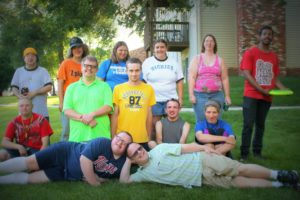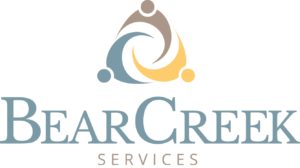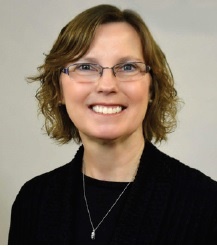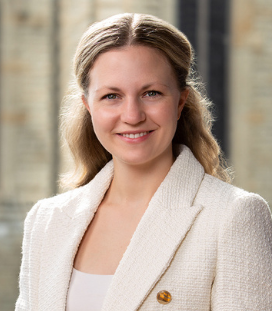Located in Rochester, MN, Bear Creek Services has been providing support services for individuals with development disabilities since becoming established in the 1970’s. Its mission expanded to support individuals with traumatic brain injuries in 1998.
Prior to the 1970’s, people with development disabilities were typically placed in institutions to live. Since their disabilities weren’t life threatening and constant medical attention wasn’t required, living inside institutions didn’t serve them well. It created bad living conditions resulting in lower life spans and more health problems.
Parents with disabled children realized how unsuitable this situation was and needed to make a change. Together they formed an organization which is now known as Bear Creek Services. It was the first organization of its kind in southeastern Minnesota.
Bear Creek’s first home was established in 1976 to providing housing for six individuals with disabilities. Today the Organization has 12 group homes and six apartments, all of which are filled each year. The 12 group homes provide continuous 24-hour care and help 56 residents.
Four of the six apartments are a part of the Bear Creek Independent Living Services (BCILS) program. Through this program, 50 higher functioning individuals with disabilities receive training each week to learn how to live more independently. Depending on the individual’s learning and progress through the program, residents can become independent enough to only require limited support services.
To learn more about Bear Creek Services, visit their website: www.bearcreekservices.org
Executive Director Q&A
Linda Driessen has served as the Executive Director for Bear Creek Services since 2013. Before joining Bear Creek Services, Linda spent 22 years in the nonprofit field, primarily with organizations whose missions support individuals with developmental disabilities.
In addition to her role with Bear Creek Services, Linda is involved with many health and human service and nonprofit initiatives that include the following.
- Region 10 Quality Council – A group that develops, implements, and monitors a continuous quality improvement system for individuals with disabilities so they can live the life that they choose in their community.
- Providers Network, Inc. – A nonprofit organization that promotes best practices for providers of residential services for individuals with disabilities in Southeast Minnesota.
- Rochester Community and Technical College Human Services Technician Advisory Board – Advises the Human Services Department at RCTC on the curriculum and class offerings appropriate to training Human Services Technicians and Pre-Social Work majors.
- Rochester Non-Profit Consortium – A group of nonprofit leaders who work together to create organizational efficiencies.
We had an opportunity to ask Linda a few questions to get her perspective of nonprofit leadership. Here’s what she had to say:
1.) What are some things you know now that you wish you knew when you first started as a nonprofit leader?
I wish I had understood more about how the activities in the Government impact the work we do. Particularly in the field of disability support services. The legislature determines our reimbursement rates. If we are not continuously involved in the process, decisions can be made that can majorly impact how we do business.
I wish I knew more about the various ways the Board of Directors can impact the work of a nonprofit and that the role of the board changes as a nonprofit changes. As with so many aspects of business, you have to repeatedly evaluate the role of the board as the nonprofit evolves.
2.) What has been your biggest source of pride as executive director?
We work with individuals with developmental disabilities and brain injury. Our desire is to build independence and maximize the potential for those we support. My biggest source of pride is when individuals accomplish life goals by way of the support services we provide. Hearing about the success of someone moving into their own apartment is a great joy for me. Watching someone we support learn a skill they have been working on for a long time makes the challenges all worth it.
I am also incredibly proud of the people who work for us. It is a tough job that doesn’t get the pay or recognition it deserves. Knowing that we have some long term, very dedicated staff keeps me motivated to help make Bear Creek Services the best provider of services to individuals with disabilities.
3.) What are your three biggest accomplishments in your career as a nonprofit leader?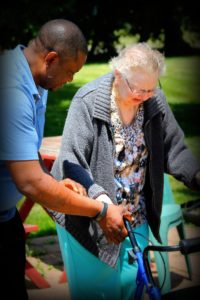
- Working with other support providers in Rochester to create a collaborative to share training that is required by the Department of Human Services.
- Building a team of really great people who work with me. My leadership team are top notch and they are the reason our agency is a success.
- Building our Independent Living Program. We are the only agency in Southeast Minnesota that offers this model for independent living.
4.) What are the dominant challenges that you see nonprofit organizations facing and what do you think would be viable solutions?
I think that many businesses are struggling to find qualified employees, but more so in the nonprofit sector. There is a belief that nonprofit should mean “no profit.” However, we have to compete for the same employees that for-profit businesses are recruiting. Typically, we are not always able to offer the same benefits as many for-profit employers. I believe there are a couple of things that nonprofits need to do. One is to break the myth that overhead in a nonprofit should be much less than in a for-profit organization. Nonprofits need to have the same tools to make a successful business, and we need to send the message to funders that supporting a good business model in a nonprofit is giving to the success of individuals who receive the supports of that nonprofit organization. Also, I believe that collaboration is necessary for success across this sector. Rochester is a great community for collaboration and a lot is being done to by local nonprofits to work together to address the needs of the community.
5.) How do you see the organization changing in the next two years, and how do you see yourself creating that change?
There is a lot of emphasis in our field to be as person centered in the supports we provide as possible. That means that our focus needs to be on supporting people to achieve the goals they set out for themselves and not prescribing how their lives should be. We have been working at this for several years and will continue to work on it.
Person centered support requires that we adjust our business to meet the ever changing needs of those we support. We will need to build more accessible homes (wheelchair accessible) and work with the community to create more affordable housing for those who wish to have their own apartment/house. I believe the role of the executive director is to set the vision and then give those who work for us the tools to accomplish the vision. I see myself as creating this by hiring and retaining employees who are excited about the vision and who believe they can create opportunities for people with disabilities to be full members of the Rochester Community.


